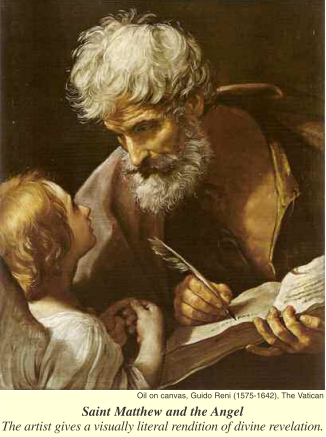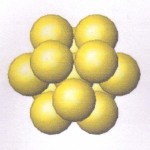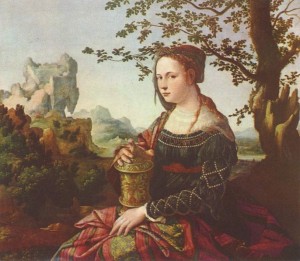HEINDEL ON POVERTY
Jan 27th, 2010 by admin
Heindel on Poverty
To answer the hard questions of stewardship,
the following is adapted from the writings of Max Heindel
We see heart-wrenching stories of people who suffer from poverty and other man-made and natural disasters every day. Often millions experience sorrow and anguish that we can only imagine. How does one reconcile the obvious imbalances of rich and poor around the world, and how does this relate to the purpose and intentions of The Rosicrucian Fellowship?
The Bible says: “Blessed be ye poor for yours is the kingdom of God.” [Luke 6-20] It also states that it is more difficult for a rich man to enter heaven than for a camel to go through the eye of a needle. Many other passages seem to show that poverty is a blessing and that riches are a curse.
A superficial reading of the Bible does lead one in a direction that contradicts reason or common sense Poverty cannot be regarded as a virtue in itself. Neither can riches as such be considered a vice. The passage from Luke: “Blessed be ye poor for yours is the Kingdom of God,” needs to be more specific.
We get that clarification from Matthew where he writes: “Blessed are the poor in spirit for theirs is the Kingdom of Heaven.”
Man, in his experiences on earth, has learned to sustain himself through innovation and by hard work in agriculture and industry, and from his labors he has gained dominion over earthly things and a great amount of prosperity. He takes pride in the farm, factory, or store that he owns. But when he sits down and takes an actual, unbiased, account of things, he realizes that the factory or store owns him, and that he has become a slave to his own possessions. These demand so much of his energies, that they take a lot of the joy out of life. He is never at peace; for he worries that he might be robbed or that the price of wheat will fall and he won’t be able to meet his obligations. Riches have, indeed, become a curse.
This man is not poor in spirit.
Another man in a similar situation might own a factory, giving employment to a large number of individuals, and he sees himself as God’s steward, taking care of a certain part of the world’s work. Not considering himself to be the personal owner of the things around him, he really is poor in spirit, though legally he may be rich on a balance sheet. As he consistently carries this attitude to his death, he lays up treasures in heaven. He is rich in that place and will enter with flying colors, no matter how narrow the gate.
Like individuals, churches may acquire great riches on earth and gain treasure in heaven if they use their assets well for the alleviation of suffering. This doesn’t mean that they should give to everyone indiscriminately. Discrimination is a great factor in soul growth, and we have every incentive to use that faculty in giving as well as in all other departments of life. Indiscriminate giving often makes beggars of people who would otherwise be useful. Certainly the Bible is not so illogical that it would say that poverty in itself is a virtue, for then we could all lead lives of idleness, which unfortunately is an all too common attitude among people who profess to follow the higher life. As a matter of fact, many poor people may have to give an account of the reason they are poor. Opportunities come to each and every one of us, and if we have failed to grasp them, if we have been spendthrifts of time and of the little material means we have had, and prevented ourselves from getting more with which to do good, we shall certainly have to answer for our actions. On the other hand, the rich man who has used his riches well may be commended for the way he has conducted his Father’s business.
At the present time we are required to at least cultivate some altruistic tendencies in order to progress beyond our present evolutionary status, according to Heindel. Yet, it is not enough to live a moral life, pay your debts, care for your family, support your church, and be a good citizen. If your interest in the church is only for the sake of your family or for respectability, and there is no heart in it, but instead the heart is in the business, in making money and in attaining worldly position, then a correction will be made after you leave the earthly life. When you enter the Desire World you will be too good to go to Purgatory, but not good enough to go to the First heaven. You will find yourself in the center of the Desire World where feelings are most intense, but you will be unable to buy or sell and will only experience a dreadful monotony.
All that was given to churches and institutions counts as nothing, because it was not given from the heart. Only when we give for love will the gift bring happiness in the hereafter. It is not the amount that is given, but the spirit that accompanies the gift that matters. Indiscriminate money giving often causes people to become thriftless and indigent, but by giving heartfelt sympathy; by helping another to believe in himself and start anew in life after he has fallen by the wayside; by giving ourselves in services rendered for humanity, we lay up treasure in heaven and give more than gold.
Christ said: “The poor are with us always.” We may not be able to bring them from poverty to riches and that may not be best for them, but we can encourage them to learn the lessons that are to be learned in poverty; we can help them to a better view of life. Unless the man who lived an “almost perfect life” does that also, he will not be “all right” when he passes out; he will suffer that dreadful monotony in order to teach him that he must fill his life with something of real value. Then, in a succeeding life his conscience will spur him on to do something better than grind out dollars, although he will not neglect his material duties, for that is as bad as to spurn spiritual endeavor.
The hot-house plant may look very beautiful as it blooms in its sheltered glass house, but should the furnace fire go out, it would wither and die, while the plant that has grown in rain and sunshine, through storm and calm, will survive the winter and bloom afresh each year. From the viewpoint of the soul, happiness and a sheltered environment are generally unfortunate circumstances. The petted and fondled lap dog is subject to diseases that the homeless mutt, which has to fight for a scrap from a garbage can, will never get. The mongrel’s life is hard, but it gets experience that makes it alert, alive and resourceful. Its life is rich in events, and it reaps a harvest of experience, while the pampered lap dog drones its time away in wearisome monotony.
The case of a human being is somewhat similar. It may be hard to fight poverty and hunger, but from the standpoint of the soul it is infinitely preferable to a life of idle luxury. Where wealth is nothing more than a tool for well thought out philanthropy, which helps the downtrodden in such a way as to really uplift him, it may be a very great blessing and a means of growth for the giver, but when used for selfish purposes and oppression, it cannot be regarded as other than an unmitigated curse.
The soul is here to acquire experience through its instruments. These are the tools furnished to each at birth, and they are good, bad or mediocre according to what we have learned through past experience in the building of them. Such as they are, we must work with them.
As devotees to the Rosicrucian philosophy, we have become aroused from the usual lethargy and are anxious to progress, so the question naturally arises, “What must I do?”
Without well-kept tools the mechanic can do no effective work; similarly, the instruments of the Ego must be cleansed and sharpened; then we may commence work to some purpose. As one works with those wonderful tools they themselves improve with proper use and become more and more efficient to aid in the work. The object of this work is Union with the Higher Self.
The various religions of the world have been given to each group of humanity by the exalted beings who we know in the Christian religion as the Recording Angels, whose wonderful prevision enables them to view the trend of even so unstable a quantity as the human mind. Thus, they are able to determine what steps are necessary to lead our evolution along the lines congruous to the highest universal good.
It is a law in the universe that a wave of spiritual awakening is always followed by a period of doubting materialism; each phase is necessary in order that the Spirit may receive equal development of heart and intellect without being carried too far in either direction. The great aforementioned Beings who care for our progress, always take steps to safeguard humanity against that danger, and when they foresaw the wave of materialism which commenced in the sixteenth century with the birth of our modern science, they took steps to protect the West as they had formerly safeguarded the East against the skeptics who were held in check by the Mystery Schools.
In the fourteenth century a great spiritual teacher appeared in central Europe whose symbolical name was Christian Rosenkreuz, or Christian Rose Cross, who founded the mysterious Order of the Rosy Cross, concerning which so many speculations have been made and so little has become known to the world at large, for it is the Mystery School of the West and is open only to those who have attained the stage of spiritual unfoldment necessary to be initiated in its secrets concerning the Science of Life and Being.
If we are so far developed that we are able to leave our dense physical bodies and take soul flights into interplanetary space we shall find that the ultimate physical atom is spherical in shape like our earth; it is a ball. When we take a number of balls of even size and group them around one, it will take just twelve balls to hide a thirteenth within. Thus the twelve visible and the one hidden are numbers revealing a cosmic relationship and as all Mystery Orders are based upon cosmic lines, they are composed of twelve members gathered around a thirteenth who is the invisible head.
There are seven colors in the spectrum: red, orange, yellow, green, blue, indigo, and violet. But between the violet and the red there are still five other colors which are invisible to the physical eye but reveal themselves to the spiritual sight. In every Mystery Order there are also seven Brothers who at times go out into the world and there perform whatever work may be necessary to advance the people among whom they serve, but five are never seen outside the temple. They work with and teach those alone who have passed through certain stages of spiritual unfoldment and are able to visit the temple in their spiritual bodies, a feat taught in the first initiation which usually takes place outside the temple as it is not convenient for all to visit that place physically.
Let not the reader imagine that this initiation makes the pupil a Rosicrucian; it does not, any more than admission to a high school makes a boy a member of the faculty. Nor does he become a Rosicrucian even after having passed through all nine degrees of this or any other Mystery School. The Rosicrucians are Hierophants of the Lesser Mysteries, and beyond them there are still schools where greater Mysteries are taught. Those who have advanced through the Lesser Mysteries are called Adepts, but even they have not reached the exalted standpoint of the twelve Brothers of the Rosicrucian Order or the Hierophants of any other Lesser Mystery School any more than the freshman at college has attained to the knowledge and position of a teacher in the high school from which he has just graduated.
A later work will deal with initiation [See Teachings of an Initiate], but we may say here that the door of a genuine Mystery School is not unlocked by a golden key, but is only opened as a reward for meritorious service to humanity and any one who advertises himself as a Rosicrucian or makes a charge for tuition, by either of those acts shows himself to be a charlatan. The true pupil of any Mystery School is far too modest to advertise the fact, he will scorn all titles or honors from men, he will have no regard for riches save the riches of love given to him by those whom it becomes his privilege to help and teach.
In the centuries that have gone by since the Rosicrucian Order was first formed it has worked quietly and secretly, aiming to mould the thought of Western Europe through the works of Paracelsus, Boehme, Bacon, Shakespeare, Fludd and others. Each night at midnight when the physical activities of the day are at their lowest ebb, and the spiritual impulse at its highest, they have sent out from their temple soul-stirring vibrations to counteract materialism and to further the development of soul powers. To their activities we owe the gradual spiritualization of our once so materialistic science.
With the commencement of the twentieth century a further step was taken. It was realized that something must be done to make religion scientific as well as to make science religious, in order that they may ultimately blend; for at the present time heart and intellect are divorced. The heart instinctively feels the truth of religious teachings concerning such wonderful mysteries as the Immaculate Conception (the Mystic Birth), the Crucifixion (the Mystic Death), the Cleansing Blood, the Atonement, and other doctrines of the Church, which the intellect refuses to believe, as they are incapable of demonstration, and seemingly at war with natural law. Material advancement may be furthered when intellect is dominant and the longings of the heart unsatisfied, but soul growth will be retarded until the heart also receives satisfaction.
In November 1909, more than a year before the end of the first decade of the twentieth century, The Rosicrucian Cosmo-Conception was published. This book marked a new era in so-called “occult” literature. The Rosicrucians teach that all great religions have been given to the people among whom they are found, by Divine Intelligences who designed each system of worship to suit the needs of the race or nation to whom it was given. A primitive people cannot respond to a lofty and sublime religion, and vice versa. What helps one group would hinder another, and along the same policy there has been devised a system of soul-unfoldment suited especially to the Western people.
For the purpose of spreading the Rosicrucian Teachings in the Western World, the Rosicrucian Fellowship was founded in 1909. It is the herald of the Aquarian Age, when the Sun by its precessional passage through the constellation Aquarius, will bring out all the intellectual and spiritual potencies in man which are symbolized by that sign.
The Rosicrucian Fellowship endeavors to prepare the world in general, and the sensitives of the two groups in particular, for the awakening of the latent powers in man, so that all may be guided safely through the danger-zone and be as well fitted as possible to use these new faculties. Effort is made to blend the love without which Paul declared a knowledge of all mysteries worthless, with a mystic knowledge rooted and grounded in love, so that the pupils of this school may become living exponents of this blended soul-science of the Western Wisdom School, and gradually educate humanity at large in the virtues necessary to make the possession of higher powers safe.
Then Jesus six days before the passover came to Bethany, where Lazarus was which had been dead, whom he raised from the dead.
There they made him a supper; and Martha served: but Lazarus was one of them that sat at the table with him.
Then took Mary a pound of ointment of spikenard, very costly, and anointed the feet of Jesus, and wiped his feet with her hair: and the house was filled with the odor of the ointment.
Then saith one of his disciples, Judas Iscariot, Simon’s son, which should betray him,
Why was not this ointment sold for three hundred pence, and given to the poor?
This he said, not that he cared for the poor; but because he was a thief, and had the bag, and bare what was put therein.
Then said Jesus, Let her alone: against the day of my burying hath she kept this.
For the poor always ye have with you; but me ye have not always.
Much people of the Jews therefore knew that he was there: and they came not for Jesus’ sake only, but that they might see Lazarus also, whom he had raised from the dead.
John 12:”1-9″



